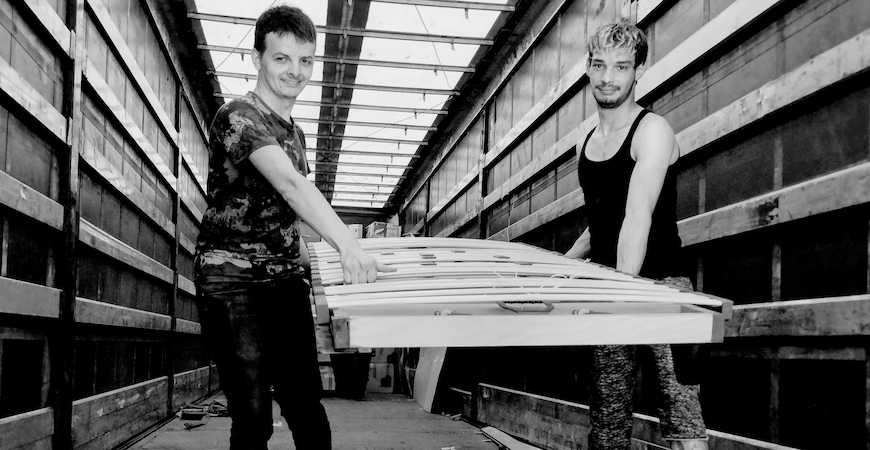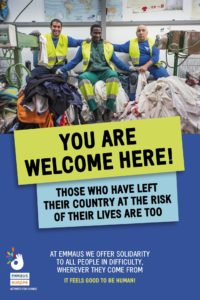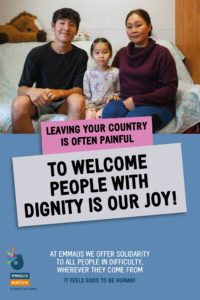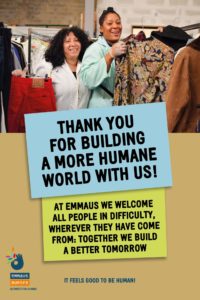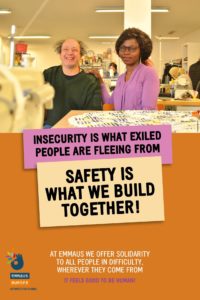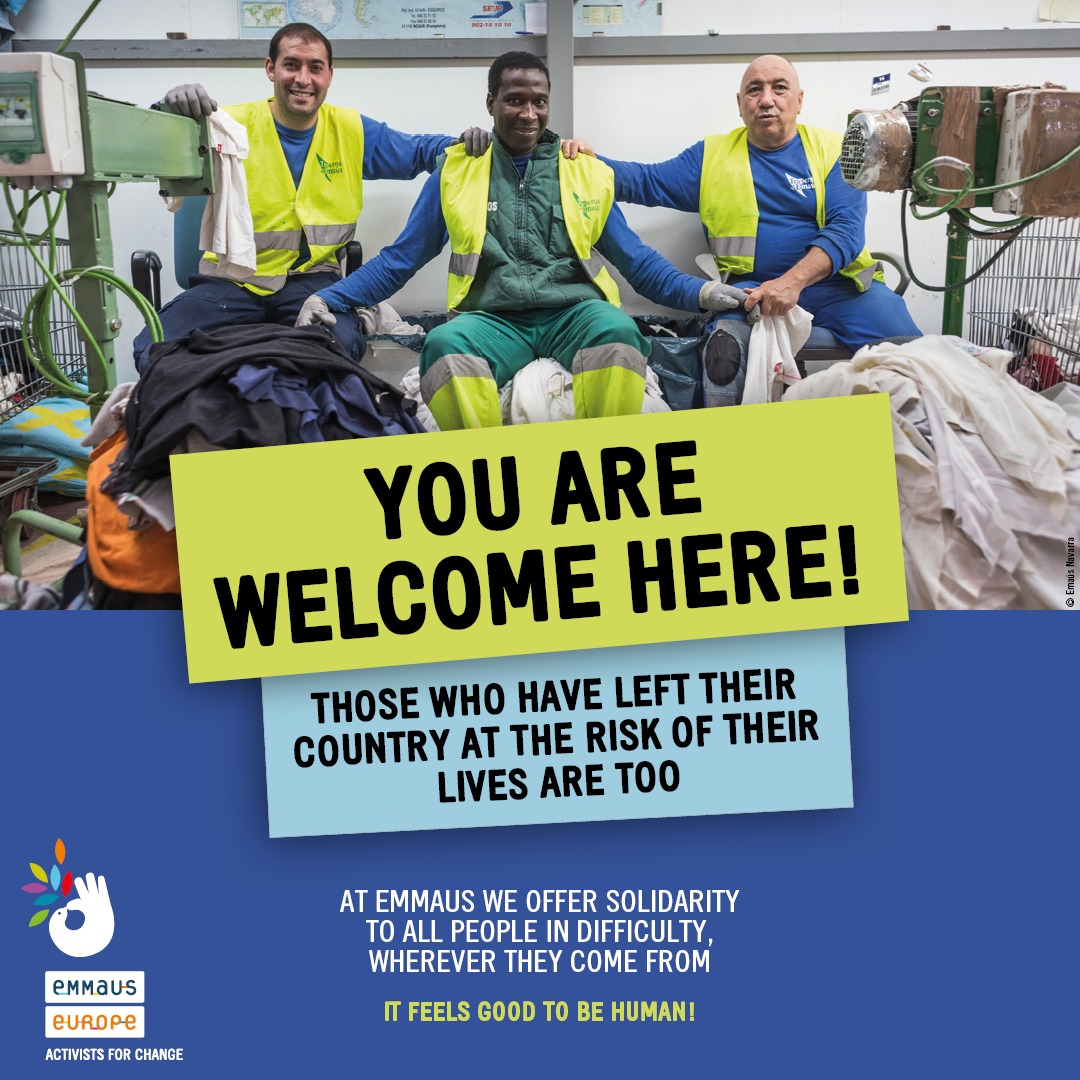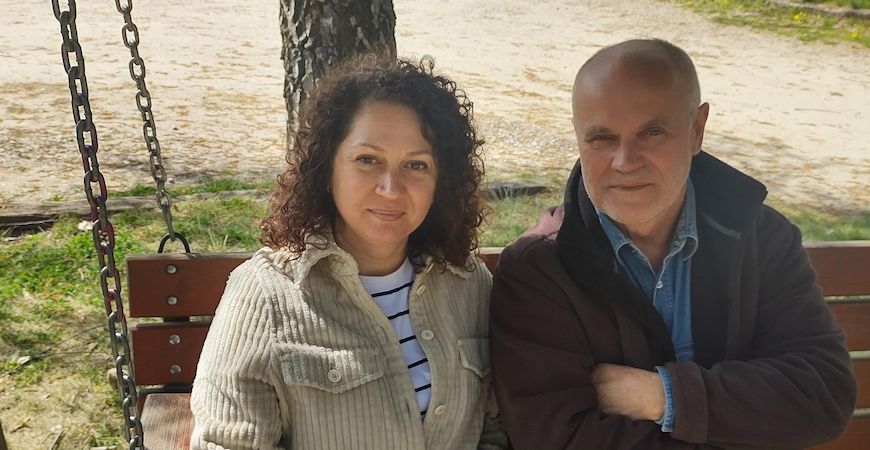Youth Camps : a shared and exciting adventure!
Every year, a number of Emmaus groups across Europe welcome young people – and not-so-young people – to spend time in the groups, and get involved in a solidarity initiative. Known variously as “summer camps” and “youth camps”, but with the same outcome: a great experience and meaningful interaction.
“Organising a youth camp is very simple.” From the outset, this comment provides reassurance for those wanting to embark on the adventure. The comment was made by Julio, the leader of Emmaus Peruwelz in Belgium, who has been organising summer camps for 14 years. In most cases, the young people travel from all over Europe, and stay with the group, sharing meals and their time with the companions. While room sometimes need to be made to host the young people, the companions are often happy to give up their rooms for one or two weeks. In fact, it is often the companions who keep asking how many people have registered, as they can’t wait for the camp to start.
The summer camp in Bosnia-Herzegovina has a different slant. Every year since 2006, Emmaus-IFS has been organising camps bringing together over 100 young people. The original idea? “Bring together in Srebrenica young people from all over the world, irrespective of their ethnicity, nationality or faith, so that they meet each other, and help the local communities to break down prejudices and barriers (…) [with the aim of] promoting tolerance, living together, and equality for all, in a post-conflict country, such as Bosnia-Herzegovina,” says Mirela, an unparalleled summer camp organiser. Logistics are obviously more challenging because of the size of the camp, but are very well organised, with the help of a large number of volunteers. A real adventure, which gets underway many months before the young people arrive!
What are the logistics in most cases? “We primarily advertise on the Emmaus Europe website, and word of mouth also works very well” says Julio. Each group manages its own registration process, and help can be provided by Emmaus Europe and Emmaus France. The latter has created a website devoted to volunteering opportunities in the French Emmaus groups: Emmaüs Expérience. While the organisation of a camp obviously involves a long-term commitment, notably answering the young people’s questions and managing arrivals, the groups are not alone in this adventure!
And it is worth it. Welcoming new people into the group very often gives a fresh boost to community life, and creates a special ambience for the fortnight, month, and even longer. This summer breeze is a break from the daily routine, and gives a fresh boost to companions’ commitment to their work, while guaranteeing a fantastic and meaningful holiday for the young people. These work camps are also the opportunity to begin renovation work (painting, reorganising the premises), and enable the groups to start new initiatives thanks to the extra hands on deck (create a vegetable garden, environmental awareness-raising, etc.)
This open-minded approach enables the young people to discover the vibrancy of the Emmaus movement, and is often the first step towards getting involved as a volunteer or employee. Julio is one of the first examples: following several Emmaus youth camps in Spain in the early 1970s, he got involved and has been living the Emmaus adventure for close to 50 years! As participants, we cannot afford to be indifferent to this opportunity to get to know the movement. This worthwhile experience enables the young people to offer practical help, meet new people, learn new things, and also have a good time. Whatever the person’s level or skills, they are welcome, and this often makes them want to return!
Mirela, from IFS-Emmaus, agrees: “Most of the volunteers who have taken part in the camp stay connected to Emmaus in one way or another. (…) It all begins and ends with volunteering!” We could not say it any better.
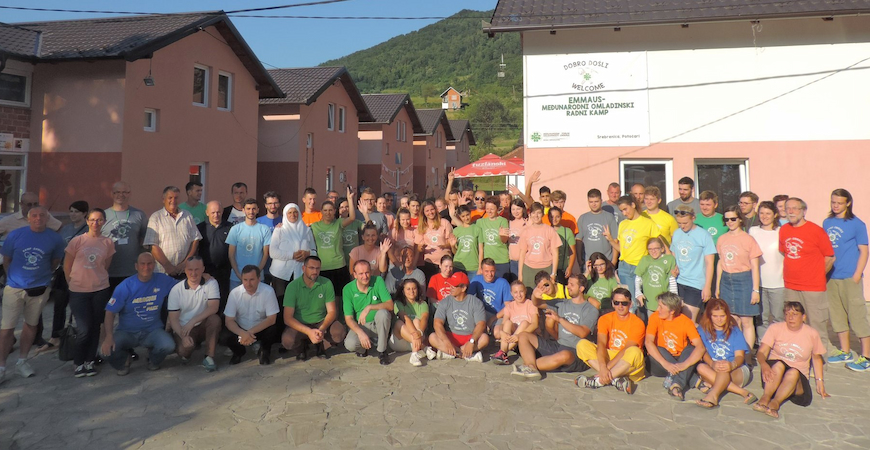
The IFS-Emmaus 2019 summer work camp, Srebrenica, Bosnia-Herzegovina - © IFS-Emmaus



